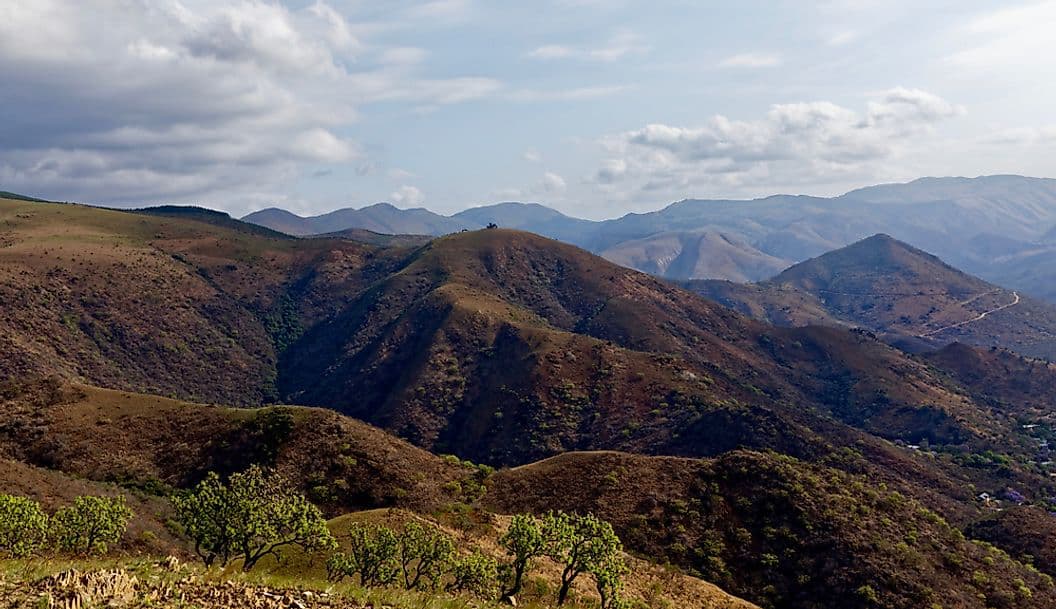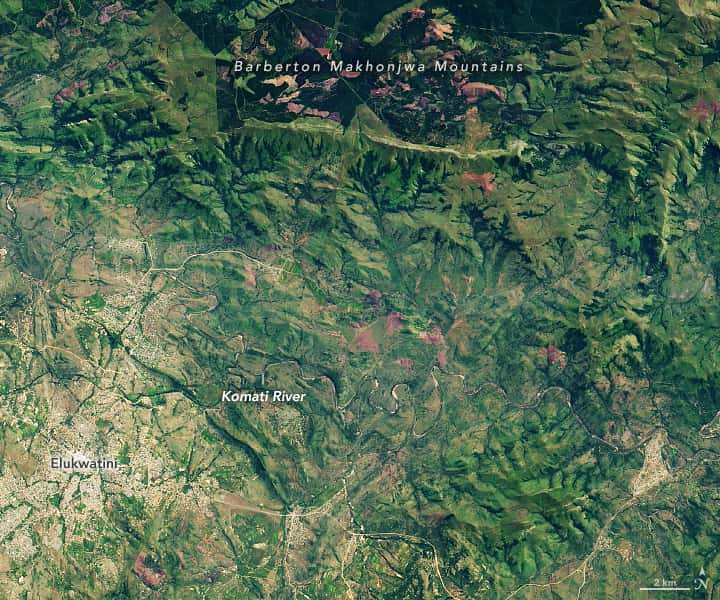
With heights ranging from 600 to 1800 meters (2,000 to 5,900 feet), the Barberton Makhonjwa Mountains in South Africa and Eswatini are not particularly tall. What distinguishes the belt of greenstone rock formations found here is their age.
Beneath the rolling, grassy uplands and forested valleys of the mountain range lie some of the oldest, best-preserved, and diverse sequences of volcanic and sedimentary rock layers found anywhere on the planet. They hold evidence of Earth’s earliest forms of life, including microfossils, stromatolites, and other biologically derived materials. Geological sampling indicates that some rock formations in these mountains are 3.2 to 3.6 billion years old.
One type of rock in this area that especially intrigues geologists is komatiite. The rare igneous rock formed from magmas that were hotter, more liquid, and denser than any lavas found on Earth today. Geologists still debate what conditions allowed komatiite to form, but many think Earth’s mantle was likely hotter or wetter three billion years ago than today, and that likely played an important role.
The natural-color image above shows part of the Komati River Valley in South Africa. Lava flows made of komatiites were first identified within this valley in 1969. The image was acquired by the Operational Land Imager (OLI) on Landsat 8 on March 10, 2021. The United Nations Educational, Scientific, and Cultural Organization declared the mountains a World Heritage Site in 2018.

This post first appeared on NASA Earth Observatory and was written by Adam Voiland.